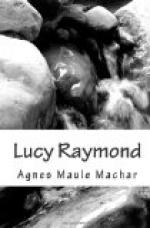Suddenly, to Nelly’s consternation, her father brought home a second wife, a comrade’s widow, with two or three young children. In the new household Nelly was at once expected to take the place of nurse and general drudge, a part for which her habits of unrestrained freedom and idleness had thoroughly disqualified her; and the results were what might have been expected. There was a good deal of heedlessness and neglect on Nelly’s part, and nearly constant scolding on that of her new mother. And as the latter was neither patient nor judicious, and was, moreover, unreasonable in what she demanded from the child, there was many a conflict ending in sharp blows, the physical pain of which was nothing in comparison with the sense of injury and oppression left on the child’s mind. But she had no redress; for her father being so much away from his home, had no opportunity of opposing, as he would probably have done, his wife’s severe method of “managing” his motherless child.
Things were in this condition when Mrs. Connor, who had formerly belonged to Ashleigh, made up her mind to remove thither, in the expectation both of living more cheaply, and of being able, among her old acquaintances, to find more work to eke out her uncertain means of living. Her husband was now working on a steamboat which passed up and down the river on which Ashleigh was situated, so that he could not see his family as often as before. They were now settled in a small, rather dilapidated tenement, with a potato patch and pig-sty; and Mrs. Connor, who was an energetic woman, had already succeeded in making her family almost independent of the earnings which Michael Connor too often spent in the public-house. This being the case, she had no scruples in providing for her own children, without much consideration for Nelly; so that the poor child was a forlorn-looking object when Miss Preston had found her hovering wistfully about, attracted by the sight of the children streaming towards the church, and had induced her to come, for the first time in her life, into a Sunday school.
And now, with these three girls before her, differing so much in circumstances and culture, it was no wonder that Miss Preston should feel it a matter for earnest consideration what parting words she should say, which, even if unappreciated at the time, might afterwards come back to their minds, associated with the remembrance of a teacher they had loved, to help them in the conflict between good and evil which must have its place in their future lives. But she felt she could not possibly do better, in bidding farewell to her young pupils, than to direct them to Him who would never leave nor forsake them,—who was nearer, wiser, tenderer, than any earthly friend,—who, if they would trust themselves to Him, would guide them into all truth, and in His own way of peace.




